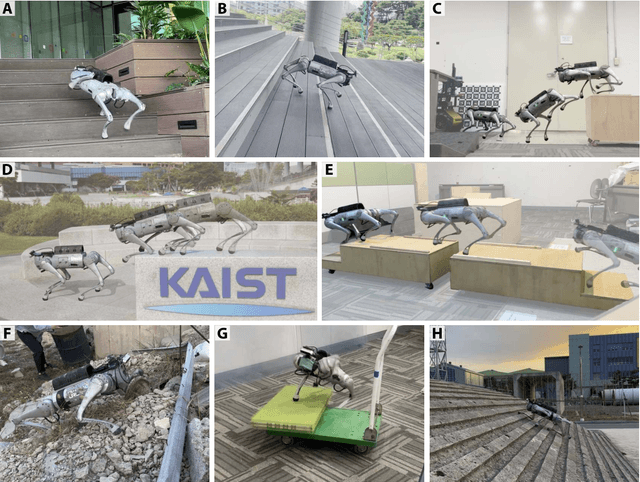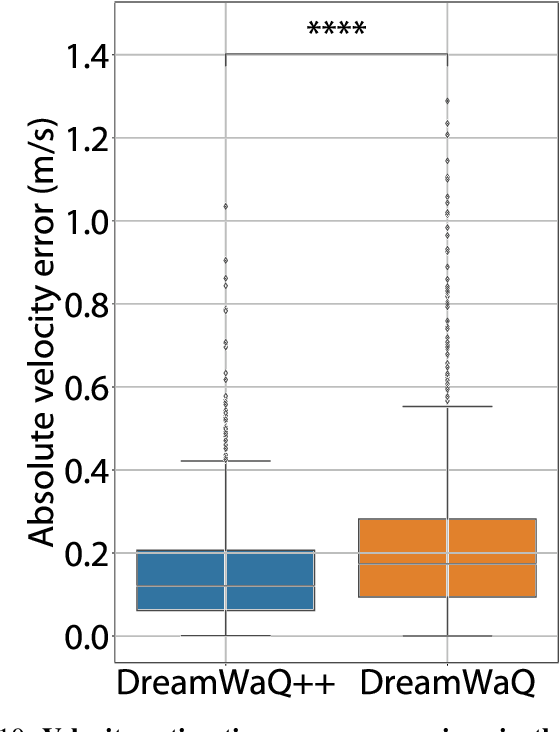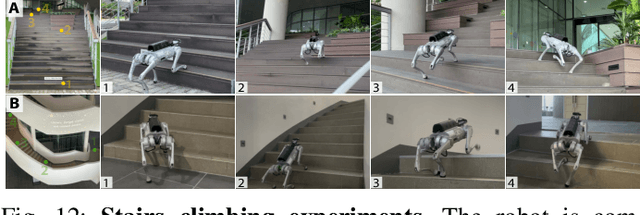Obstacle-Aware Quadrupedal Locomotion With Resilient Multi-Modal Reinforcement Learning
Paper and Code
Sep 29, 2024



Quadrupedal robots hold promising potential for applications in navigating cluttered environments with resilience akin to their animal counterparts. However, their floating base configuration makes them vulnerable to real-world uncertainties, yielding substantial challenges in their locomotion control. Deep reinforcement learning has become one of the plausible alternatives for realizing a robust locomotion controller. However, the approaches that rely solely on proprioception sacrifice collision-free locomotion because they require front-feet contact to detect the presence of stairs to adapt the locomotion gait. Meanwhile, incorporating exteroception necessitates a precisely modeled map observed by exteroceptive sensors over a period of time. Therefore, this work proposes a novel method to fuse proprioception and exteroception featuring a resilient multi-modal reinforcement learning. The proposed method yields a controller that showcases agile locomotion performance on a quadrupedal robot over a myriad of real-world courses, including rough terrains, steep slopes, and high-rise stairs, while retaining its robustness against out-of-distribution situations.
 Add to Chrome
Add to Chrome Add to Firefox
Add to Firefox Add to Edge
Add to Edge